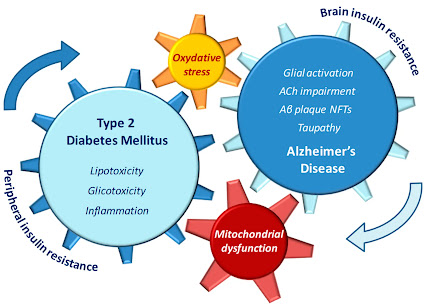Stress appears to contribute to Alzheimer's
Stress appears to contribute to Alzheimer's
Every year, around 470,000 Americans are determined to have Alzheimer's. For some, the principal sign is gentle mental debilitation - a pre-dementia condition that fundamentally expands the gamble of fostering Alzheimer's in the next months or years.
In the ebb and flow study, scientists from Albert Einstein College of Medicine and Montefiore Health System - both in New York - took a gander at the association between constant pressure and amnestic gentle mental hindrance (aMCI), which is the most well-known kind of MCI, the principal element of which is cognitive decline.
The group concentrated on information gathered from 507 individuals signed up for the Einstein Aging Study (EAS), a local area based partner of more seasoned grown-ups.
Members tried for scope of mental issues
Starting around 1993, the EAS has deliberately enrolled 507 grown-ups matured 70 years and over who live in Bronx County, NY.
Members go through yearly appraisals that incorporate clinical assessments, neuropsychological tests, psychosocial measures, clinical history, evaluations of everyday living exercises and reports of memory issues and other mental grievances by members and their family members or carers.
In 2005, the EAS started evaluating pressure utilizing the Perceived Stress Scale (PSS).
The PSS is a broadly utilized 14-thing proportion of mental pressure, intended to be delicate to ongoing pressure. It estimates pressure apparent over the earlier month because of progressing life conditions, conceivable future occasions and different causes. PSS scores range from 0-56, with higher scores demonstrating more noteworthy saw pressure.
The finding of aMCI depended on normalized clinical measures, including the aftereffects of review tests and reports of distraction from the members or from others.
Every one of the members were liberated from aMCI or dementia at their most memorable PSS appraisal. They then, at that point, went to no less than one subsequent assessment every year for a normal of 3.6 years.
Stress related with higher rate of aMCI
An aMCI finding was made for 71 members during the review. The higher the feeling of anxiety, the more noteworthy the members' gamble for creating aMCI. For each 5-point expansion in PSS scores, the gamble of creating aMCI expanded by 30%.
Members were then isolated into five gatherings, or quintiles, in view of their PSS scores, going from high pressure in the top quintile to low pressure in the last one.
Members in the most noteworthy pressure quintile were almost 2.5 times bound to foster aMCI than those in the leftover four quintiles joined (low pressure). Members in the high-stress bunch were likewise bound to be female, to have a lower training level and more elevated levels of discouragement.
To affirm the job of pressure in hoisting the gamble for aMCI, the specialists then surveyed whether discouragement could likewise have contributed. Discouragement is related with pressure, mental hindrance and Alzheimer's sickness.
Be that as it may, misery didn't seem to influence the relationship saw among pressure and the beginning of aMCI altogether.
Essentially, stress seemed to no affect mental status in members who had somewhere around one e4 allele of the APOE quality. This quality builds their gamble for growing late-beginning Alzheimer's.




Comments
Post a Comment